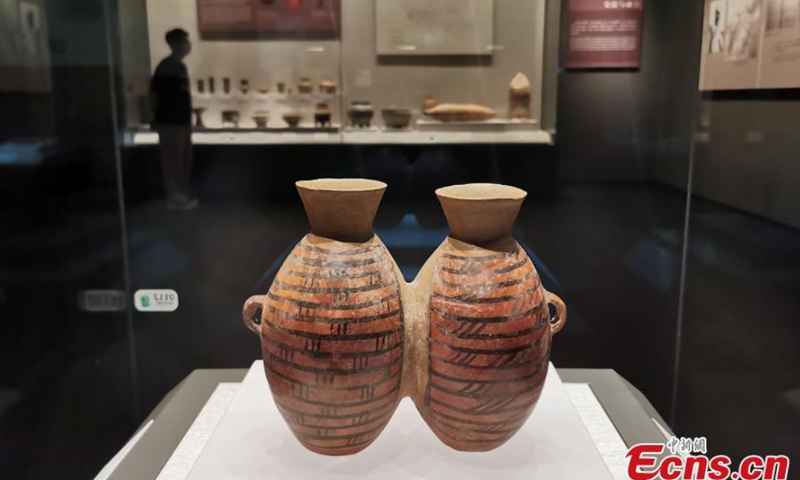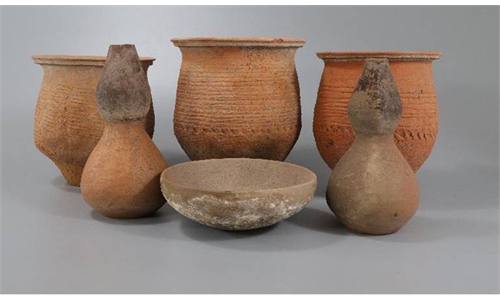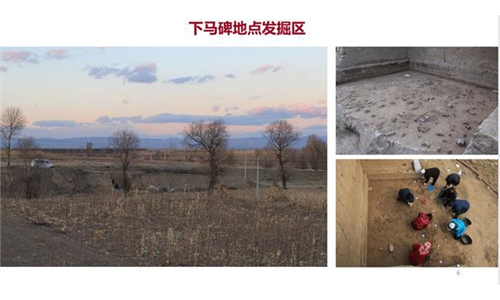
People visit Henan Museum in Zhengzhou, Henan Province, Aug. 31, 2021.Photo: CNSPhoto
Three narrow bamboo boards unearthed at an excavation site in Central China's Hunan Province have been identified as invoices for grain storage, shedding light on China's official food management practices approximately 2,000 years ago.
The boards, discovered at the Tuzishan Relics Site in the city of Yiyang, date back to the Eastern Han Dynasty (25-220), and were produced by a granary in triplicate form for three parties. Each of the boards is 24.7 centimeters in length, 1.1 centimeters in width and 0.5 centimeters thick.
They show information such as the owner's name, the weight and type of grain stored, and the names of the granary clerk and supervisor who witnessed the handover process.
Zhang Chunlong, head of the excavation team, said the boards are the oldest triplicate forms ever found in China, indicating the grain management in Yiyang at the time was well-regulated.
"The ancient receipts have a similar nature to contemporary invoices, which can also be used as accounting invoices for reconciliation and management," said Chen Min, an associate professor of accounting at Hunan University.
The cleaned bamboo boards have been archived for future research and exhibition.
Xinhua



